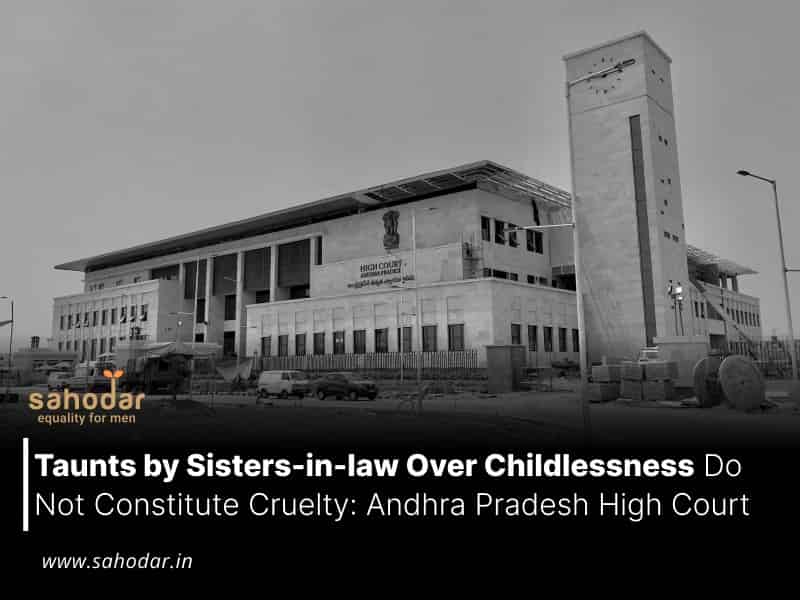“Taunting on the ground of not being able to conceive cannot be taken as sufficient grounds for continuation of proceedings against (the sisters-in-law) under Section 498A, IPC,” the Court said.
The Andhra Pradesh High Court recently held that a case of marital cruelty under Section 498A of the Indian Penal Code (IPC) cannot be sustained against a woman’s sisters-in-law solely based on allegations that they taunted her for not conceiving a child.
A Bench led by Justice Harinath N accordingly quashed the criminal proceedings initiated under Section 498A IPC and the Dowry Prohibition Act against two women who were accused of making such remarks towards their brother’s wife.
“Taunting on the ground of not being able to conceive cannot be taken as sufficient grounds for continuation of proceedings against petitioners 3 and 4 (sisters-in-law) under Section 498-A IPC and Section 3 and 4 of DP Act,” the Court said.
The Court also noted the arguments that the sisters-in-law had been living away from the complainant-woman’s matrimonial home after her marriage.
“The petitioners 3 and 4 (sisters-in-law), soon after their marriage, were staying away and as such could not have resorted to any harassment to the third respondent (complainant) and the allegations against the petitioners 3 and 4 cannot be considered as sufficient for punishing them for the of offences under Section 498A of IPC and 3 and 4 of DP Act,” it noted.
The sole allegation against the sisters-in-law was that they would taunt the complainant for her inability to conceive a child during their visits. However, the Court ruled that such allegations, by themselves, are insufficient to maintain a criminal case.
“Such vague allegations without any specific details as to on what date and when the said taunting was resorted to by (the sisters-in-law) cannot sustain the scrutiny of law,” the Court said.
The Court was considering a petition filed by a man’s parents and sisters (the petitioners), who had been accused by his wife of marital cruelty and dowry harassment. The petitioners contended that they had no involvement in the couple’s marital disputes.
Ultimately, the Court granted relief to the sisters-in-law, finding that they had been needlessly implicated by the complainant in an attempt to retaliate against her husband.
“This case is another where the unconnected relatives of the first accused are roped in as accused only for wreaking out vengeance against the first accused,” the Court said.
However, the proceedings against the complainant’s parents-in-law have not been dismissed.

